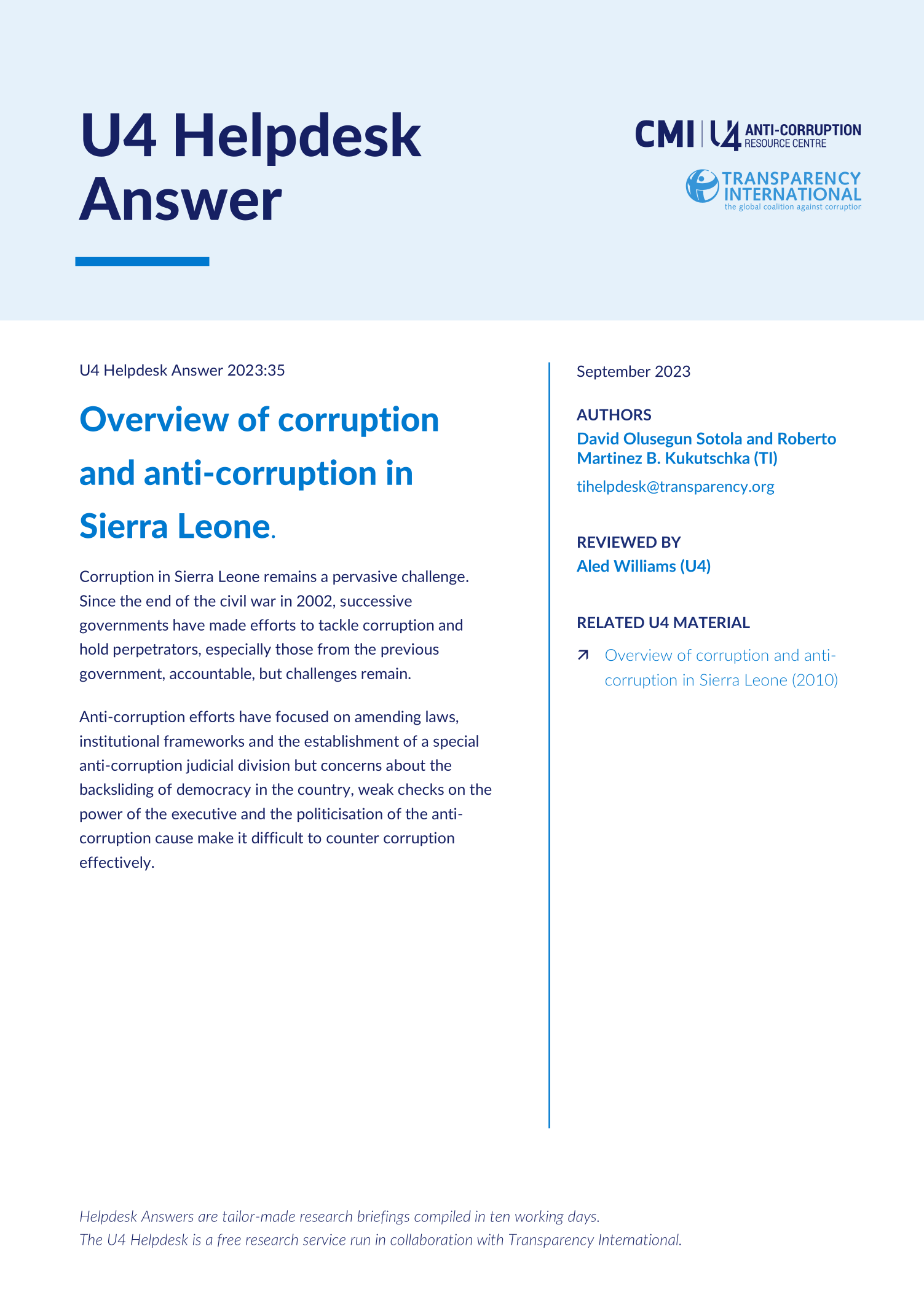Main points
- Corruption remains a pervasive challenge in Sierra Leone and available indicators show an inconclusive picture of the progress made in controlling corruption.
- The government has taken important steps to improve anti-corruption legislation, but a lot more remains to be done in terms of enforcement, transparency and access to information.
- Corruption in the health and education sectors, as well as in the police, are of particular concern.
- The government seems to have handled the COVID-19 pandemic better than the Ebola outbreak a few years before, but few people benefitted from the government’s relief programme and most people think the funds were unfairly allocated.
- Recent events have given rise to concerns that one of the main anti-corruption players in the country, the Anti-Corruption Commission, might be exclusively targeting actors outside of the ruling party.

